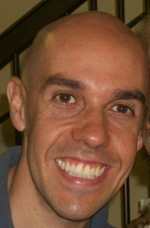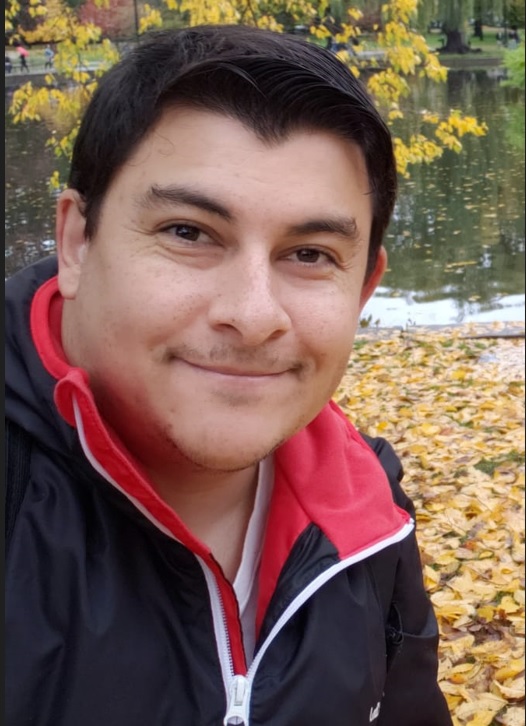Master’s Degree in Health Sciences
The Santo Amaro University, with more than 50 years of tradition in teaching, research and extension in the southern region of São Paulo, is the only University that maintains a research partnership with the Capela do Socorro and Parelheiros, in the southern region of the São Paulo.
This partnership motivated us to structure the Health Sciences Program, one of the pioneers in this segment and which lists a number of characteristics that meet the proposal of the program, such as:
- Its own regional characteristics;
- The historical involvement of the university in public health policies in the region;
- The population characteristics and professional profile of the graduates of this region;
- The need for integration of knowledge to respond to the complexities of diseases and their diseases;
- Incentive program for the teachers with multidisciplinary vision in their teaching and research practices, enabling the formation of students with innovative profile.
The multidisciplinary vision is the mediating element of the Master’s Degree in Health Sciences, allowing the understanding of sciences and their interrelationships on a level of comprehensive, critical and creative analysis and reflection, always having diseases and illnesses prevalent in the community as the object of study.
Duration: 24 months (630 hours)
Modality: In-person
Training: Master
Period: Full-time
Offer locations: Interlagos | Adolfo Pinheiro Campus
Objectives
General:
Provide to the students the acquisition of scientific knowledge about the health-disease process, disease prevention and health promotion, looking to integrate laboratory, clinical and epidemiological studies.
Specific:
- To use the most appropriate and innovative laboratory technology to diagnose prevalent diseases in the region;
- To identify the determinants of prevalent diseases in the region;
- To know the organization and performance of the health services of the region and its impact on the health care of the population;
- To promote research in order to offer subsidies to the elaboration of public health actions, to improve the quality of life of people;
- To interact with other graduate programs in the country and abroad, making possible the academic-scientific exchange;
- To prepare teachers for higher education and professionals to meet the needs of society, with a critical, humanistic and ethical view.
Course Characteristics
The course lasts 24 months. The student is responsible for completing 8 credits in obligatory and 8 credits in optional disciplines. In addition, the student must complete 12 credits in research activities and 4 credits of complementary activities, such as: publications, participation in congresses, classes and extension activities. The dissertation for obtaining the Master’s degree equals to 10 credits. Each credit is equal to 15 hours. Therefore, the student must complete 630 hours.
Obligatory disciplines occur on Fridays in the morning and in the afternoon; optionals are offered on Fridays in the evening and Saturday in the morning and in the afternoon. Of the total credits, 25% may be completed on other Stricto Sensu graduate courses, at Masters and/or PhD levels, as long as they are recognized by CAPES (responsible to evaluate Master and Doctor courses in Brazil). The student will also be able to complete credits of optional disciplines offered by the other Stricto Sensu courses from the Santo Amaro University.
Disciplines
Obligatories
- Scientific research methodology
- Biostatistics
- Interdisciplinary Research Seminars I and II
Optionals
- Adaptations in skeletal muscle: from bench to bedside
- Advanced topics in Health Sciences
- Biotechnology and Bioinformatics Resources Applied to Health Sciences;
- Cellular and molecular bases of diseases
- General Epidemiology
- Influence of environmental exposure on human immunity with a focus on allergies;
- Public policies and integral health care
- Scientific writing
- Prevention in Cardiovascular Disease
Professors of the course

Profa. Dra. Ana Paula Ribeiro
Profª. Dra. Aline Boveto Santamaria
Profª. Dra. Aline Boveto Santamaria
Researcher ID: AAI-7639-2020
Scopus ID: 56020011900

Prof. Dr. Andre Luis Lacerda Bachi

Prof. Dr. Andre Luis Lacerda Bachi
Researcher ID: T-6931-2018
Scopus ID: 57198487025
Profa. Dra. Carolina Nunes França
Profa. Dra. Carolina Nunes França
Researcher ID: J-2429-2015
Scopus ID: 36805287100
Profa. Dra. Jane de Eston Armond
Profa. Dra. Jane de Eston Armond
Researcher ID: AAN-4057-2020
Scopus ID: 7801467583
Prof. Dr. Jefferson Russo Victor
Profª. Dra. Juliana de Melo Batista dos Santos:
Profª. Dra. Juliana de Melo Batista dos Santos:
Researcher ID: U-2855-2019
Scopus ID: 59157853600

Prof. Dr. Luiz H. da Silva Nali

Prof. Dr. Luiz H. da Silva Nali
Researcher ID: AAE-1520-2020
Scopus ID: 56019135000

Profa. Dra. Marina Tiemi Shio

Profa. Dra. Patricia Colombo
Profa. Dra. Paula Rezende Teixeira
Profa. Dra. Paula Rezende Teixeira
Researcher ID: C-2593-2013
Scopus ID: 24176350900
Profa. Dr. Saulo dos Santos Gil
Profa. Dra. Stella de Souza Vieira
Profa. Dra. Stella de Souza Vieira
Researcher ID: CGE-1770-2022
Scopus ID: 55946432100
Who is it addressed to?
Health professionals and related fields.
Research lines
Clinical laboratory investigation in cardiovascular disease:
Assessment of risk factors for the development of cardiovascular diseases and their consequences on physical and mental health, through clinical and laboratory investigation and the study of cellular and molecular mechanisms.
Associated projects in the years 2025–2026:
– Epidemiologic profile and social and health determinants of recyclables collectors: health survey of Coopercaps, São Paulo.
– Association between Dietary Inflammatory Index and inflammatory markers in adults with obesity.
– Relationship between dietary habits, metabolic profile and sleep quality in obesity.
– Profile of cardiometabolic markers in elderly people with Osteosarcopenia and/or Obesity.
– Therapeutic potential of biosurfactants in modulating inflammation and their clinical implications.
– Association between different sedentary behaviors and depressive symptoms.
– Effect of reducing mentally passive sedentary behaviors on depressive symptoms in individuals with depressive symptoms.
– Physical activity, wearable technology and physiological assessment in the control of cardiovascular risk.
– Role of paradoxical sleep restriction in myocardial infarction in rats.
– Effects of photobiomodulation on doxorubicin-induced toxicity in mesenchymal stem cells.
Epidemiological and laboratory evaluation of inflammatory and infectious diseases.
Assessment of epidemiological aspects (incidence, prevalence, control), laboratory diagnosis and experimental studies of inflammatory, infectious and non-infectious diseases of regional importance.
Associated projects in the years 2025–2026:
– Analysis of the impact of Cytomegalovirus seropositivity on the upper respiratory tract immune response in elderly individuals vaccinated against Influenza.
– Evaluation of the inflammaging process in frail and physically active elderly people in nursing homes.
– Investigation of the expression profile of human endogenous retroviruses of the K, W and H families in pregnant women at risk of eclampsia.
– Evaluation of vaccination status against hepatitis B, tetanus and respiratory viruses in independent and cooperative recyclables collectors in the city of São Paulo.
– Expression of human endogenous retroviruses in health and disease: possible mediating role in inflammatory and immunopathogenic conditions.
– Immunological theory of “baitless hooks”: Elucidation of the cellular and molecular processes involved in the regulatory action of IgG antibodies produced by allergic individuals or individuals with viral infections.
– Therapeutic exercises and training for pain Neuroscience in musculoskeletal disorders in the elderly.
– Exercises and training for chronic pain in conjunction with orthoses (shoes, insoles or suspenders) in the treatment of spinal dysfunctions, injuries in runners and hip and knee osteoarthritis.
– The role of the host immune system against the Leishmania parasite virus.
– Ectophosphatases and the life cycle of Leishmania naiffi: implications for metacyclogenesis and infection.
Talk to the coordination
- Profa. Dra. Carolina Nunes França: cnfranca@prof.unisa.br
- Phone numbers: 2141-8584 / 8702